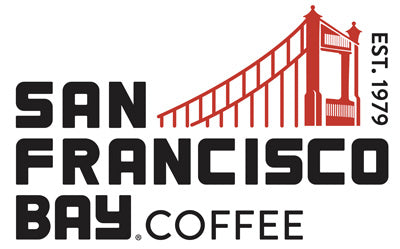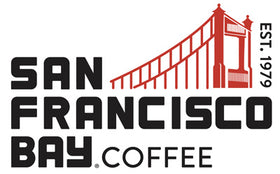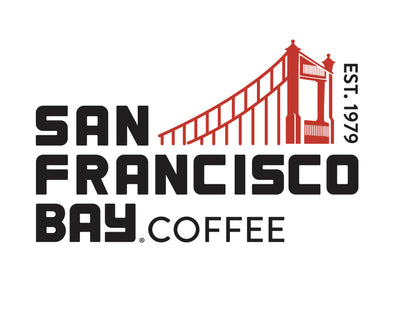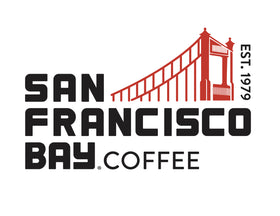Meet Our Farmers Tani Gayo Sumatra
Our Meet Our Farmers series provides a glimpse into the history, legacy and dedication of the farming families whom we partner with. When you purchase San Francisco Bay Coffee, you are joining our efforts to improve the lives of our farmers and those in their communities around the world.
U_Tani Gayo Cooperative Sumatra


Like so many others in this region, Sri Hartati, Annida, and Awwana and Zulpan inherited their farms from their parents. They added to their acreage by purchasing other land as well. The gardens on these properties were mostly established by their parents and cultivated to their current output during the early 1990s.
The soil in Aceh is volcanic and extremely fertile - perfect for coffee plants. It’s continually being processed with coffee husks, grass, and livestock manure. Coffee grown here is sourced at 4,200 to 5,200 feet above sea level. Takengon’s growing area is renowned for its micro-climate and provides its farmers with an extended harvesting season. The shade-grown coffee here is some of the most popular coffee on the planet. The beans have a low acidity with tones of earthiness, chocolate, a touch of butterscotch and other spices.

Sri Hartati, land height 1550 masl
Farmers here cannot afford some of the technological advances that the coffee industry utilizes in other growing areas of the world. Everything here is done by hand, learned through years of tradition and experience. The beans are wet-hulled (the local farms call this “Giling Basah”), which involves removing the outer layers of the coffee cherries to reveal the beans. They then soak in tubs and are spread out to dry in the sun. Afterwards, they go through a hulling machine and then back into the sun to dry more. Once their moisture percentage is below 12%, the beans are sent off to the roasters. This process makes the coffee from this region unique in the world market.
Farms in this area range in size from 1.5 to 5 acres. Each farmer needs 2 to 3 workers per acre for land management and then 3 to 5 workers during harvest. These extra workers live nearby the farming families and either make their way to harvesting locations by foot, or for a modest sum are collected by the local transport system. Currently, Sri Hartati, Annida, and Awwana and Zulpan are finishing revitalizing older plants, coffee branch care, and land/weed management. They’re about to move into Sumatra’s extensive harvesting season, and though they will see high and low flushes, the season will continue through May and June of next year.

Annida, land elevation 1570 masl
The coffee these farmers grow for San Francisco Bay Coffee are Hibrido de Timor (more affectionately known as “TimTim” – a blend of arabica and canephora varietals), Gayo Satu and Gayo Dua (known as Gayo 1 and Gayo 2, known for their earthy and potent flavors), Catimore (a hardy, high-yielding and disease-resistant plant with a sweet aftertaste), and Ateng Super (which stands for “Aceh Tengah” for the region around the lake in Takengon) – a dwarf varietal of the region.
Sri Hartati, Annida, Awwana and Zulpan are very appreciative of their relationship with San Francisco Bay Coffee. Gayo culture considers business bonds incredibly important. This business relationship gives these growers the confidence they need to progressively improve and replant their existing farms. They know they will be able to consistently sell at harvest time. And while the social programming with San Francisco Bay Coffee is on hold for the time being due to many uncertainties in the region, the surety San Francisco Bay Coffee can provide in the marketplace goes a long way in helping these small-farm growers supply the best possible product.
| Still, there are many challenges these growers face regularly. Climate change is affecting growing seasons. Wet weather periods affect flowering, and therefore coffee yield further down the line. Inconsistent local prices can have a detrimental impact on a grower’s final income. Pricing can fluctuate greatly when competitive buyers come into the region with lower cash-in-hand offers. Even the current shipping crisis affects this region, as companies hold off on sending shipments which were prepared long ago. Looking ahead, the Cooperative plans to help its growers with plant upkeep, new cropping patterns, and stem rejuvenation. Sri Hartati, Annida, and Awwana and Zulpan are proud of the richness of this land they maintain, the growth of their small farms, and their relationship with the Cooperative and San Francisco Bay Coffee for good pricing. They remain grateful for good pricing and continued help with productivity, quality, good buyers, and attention to the local community of small-farm growers. |
Awwana, Altitude 1570 masl
|




